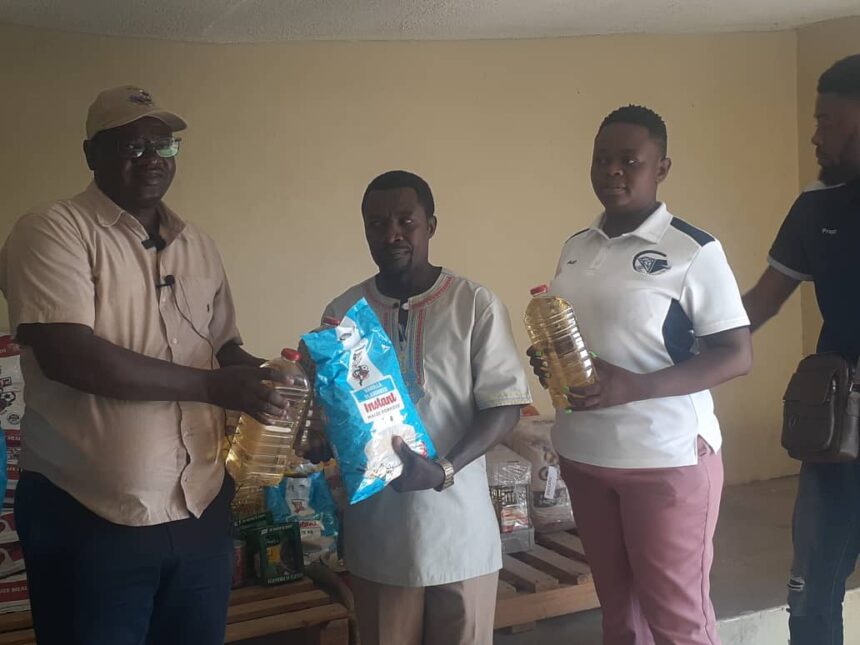Andreas Thomas
WINDHOEK – Moses /Garoëb constituency councillor Stefanus Ndengu has expressed gratitude to the Pluczenik Diamond Namibia for the donation of food worth N$10 000 to his community.
The diamond-cutting and polishing company donated food items, including bags of maize meal, rice, cooking oil and condiments.
The food items will be given to the destitute who come to his office, and others who were identified by the community leaders through the Constituency Development Committee (CDC).
Ndengu, who was elected as the constituency councillor following a by-election earlier in January, said people stream into his office in Katutura’s Havana informal settlement every day, begging for food.
“We are living with people who are unable to feed themselves. Most of the time in our office, people come here crying. You can see that for three days, a person has not eaten anything. This is the reality that our people are suffering because of high unemployment,” he stated last week.
These circumstances prompted him to approach organisations and people to ask for contributions.
“As the constituency councillor and my CDC, we always do our best to go and kneel before our people in the community and those outside the constituency so that they can help,” he added.
During the handing-over, Ailly Besani from Pluczenik said they received a call last month that the constituency required assistance.
“They asked if we could assist with anything, and we decided to buy food. I hope we can do this on a monthly basis. It is not a promise, but other companies can also come on board,” said Besani.
The majority of people in Moses //Garoëb survive by means of the government’s social safety nets, which include the old age social grant, the disability grant, and the Food Bank grant.
Last year, the government took the decision to transform the Food Bank programme into a N$ 600 monthly cash payment for close to 10 000 beneficiaries across all 14 regions.
Ndengu commended the government for this grant, formerly referred to as the conditional basic income grant, saying that it has brought relief to many households.
A community leader, Selma Jonas, told Nampa that poverty is the biggest challenge in the constituency, which was exacerbated by the Covid-19 pandemic, during which many people lost their jobs.
“As a community leader, people come knocking on our doors looking for food. People come to us crying because they have nothing to eat at home. Many a time, we are forced to share the little we have from our own pockets.
“In our area, you can find a household with up to 10 people who are dependent on one breadwinner, who in most cases is under-employed,” she noted.
Although Jonas commended the government through the Ministry of Poverty Eradication and Social Welfare, she said there is a need to increase the beneficiaries of the conditional basic income grant.
She observed that many former beneficiaries of the Food Bank programme fell out of this social safety net when it was transformed into a cash payment, while many breadwinners are under-employed and unable to feed members of their households.
This sentiment was echoed by Helena Kauluma, a mother of three.
“I used to receive food parcels from the Food Bank. But now I am not receiving the N$600, and I do not know why. I think it is important that the government increases the number of beneficiaries,” she pleaded. Kauluma survives by selling tomatoes in Havana. She receives N$300 each for two of her children through the orphanage and vulnerable persons’ grants, but is not receiving a grant for her 10-month-old son.
In an earlier interview with New Era, Ndengu, who often feeds the community from his own money, suggested that vulnerable individuals in informal settlements – who are not registered for social grants and the Food Bank – be included in the drought relief programme, as the situation is really getting out of hand.
He underlined the similarities between the living conditions in these areas and those in rural villages, highlighting the lack of basic amenities such as toilets, water and electricity in some locations. – Nampa


